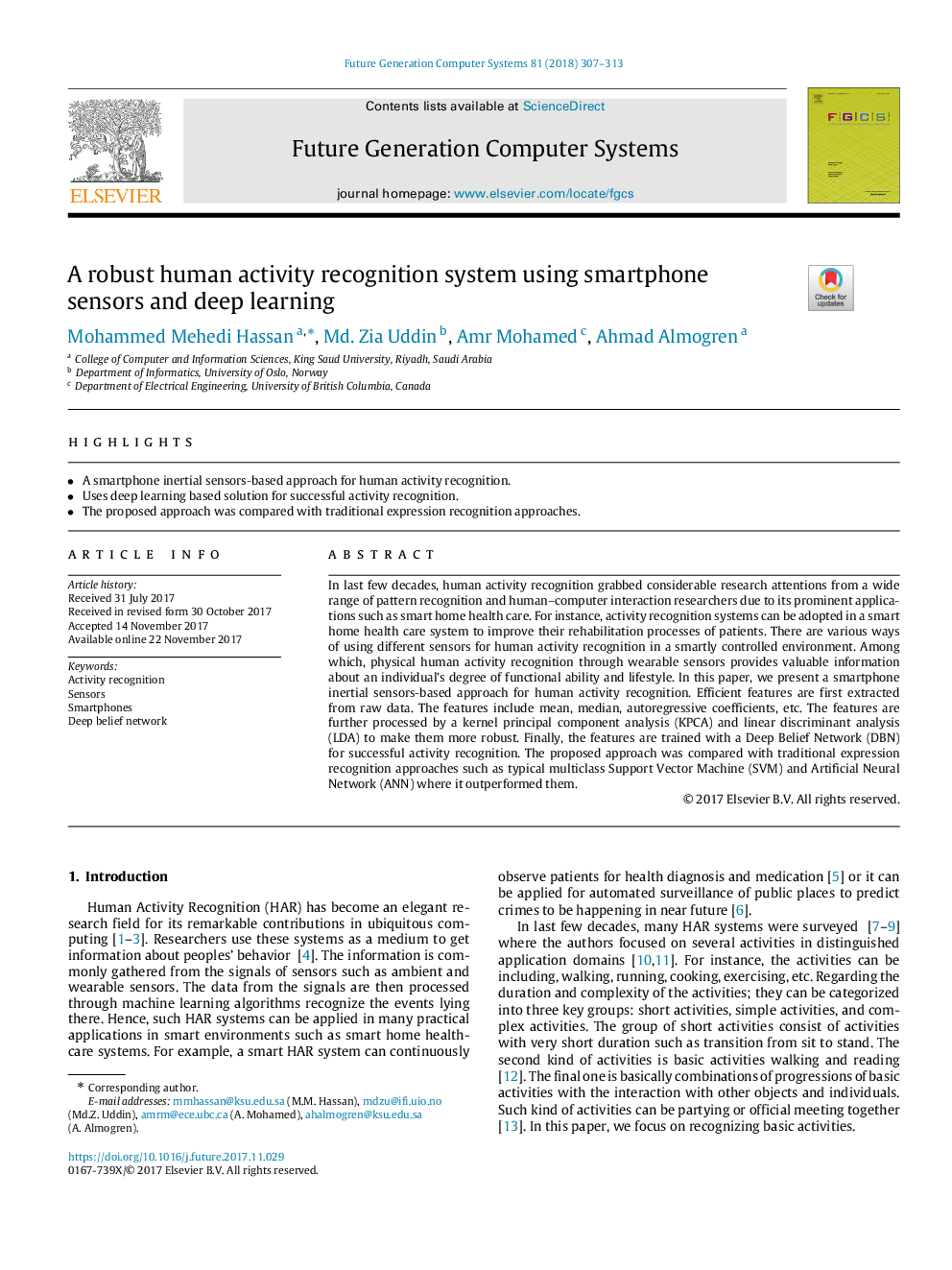| Article ID | Journal | Published Year | Pages | File Type |
|---|---|---|---|---|
| 6873276 | Future Generation Computer Systems | 2018 | 7 Pages |
Abstract
In last few decades, human activity recognition grabbed considerable research attentions from a wide range of pattern recognition and human-computer interaction researchers due to its prominent applications such as smart home health care. For instance, activity recognition systems can be adopted in a smart home health care system to improve their rehabilitation processes of patients. There are various ways of using different sensors for human activity recognition in a smartly controlled environment. Among which, physical human activity recognition through wearable sensors provides valuable information about an individual's degree of functional ability and lifestyle. In this paper, we present a smartphone inertial sensors-based approach for human activity recognition. Efficient features are first extracted from raw data. The features include mean, median, autoregressive coefficients, etc. The features are further processed by a kernel principal component analysis (KPCA) and linear discriminant analysis (LDA) to make them more robust. Finally, the features are trained with a Deep Belief Network (DBN) for successful activity recognition. The proposed approach was compared with traditional expression recognition approaches such as typical multiclass Support Vector Machine (SVM) and Artificial Neural Network (ANN) where it outperformed them.
Related Topics
Physical Sciences and Engineering
Computer Science
Computational Theory and Mathematics
Authors
Mohammed Mehedi Hassan, Md. Zia Uddin, Amr Mohamed, Ahmad Almogren,
